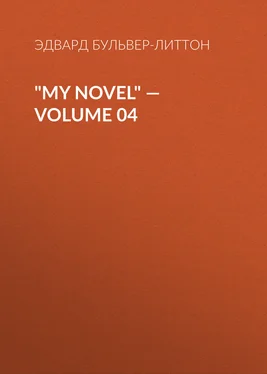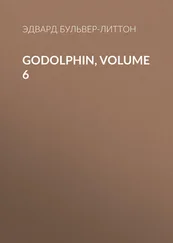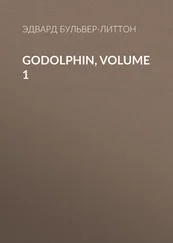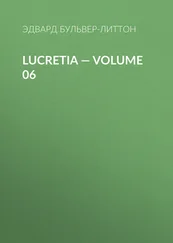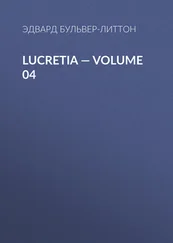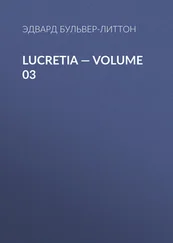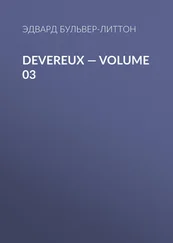Эдвард Бульвер-Литтон - My Novel — Volume 04
Здесь есть возможность читать онлайн «Эдвард Бульвер-Литтон - My Novel — Volume 04» — ознакомительный отрывок электронной книги совершенно бесплатно, а после прочтения отрывка купить полную версию. В некоторых случаях можно слушать аудио, скачать через торрент в формате fb2 и присутствует краткое содержание. Жанр: foreign_prose, literature_19, Европейская старинная литература, foreign_antique, на английском языке. Описание произведения, (предисловие) а так же отзывы посетителей доступны на портале библиотеки ЛибКат.
- Название:My Novel — Volume 04
- Автор:
- Жанр:
- Год:неизвестен
- ISBN:нет данных
- Рейтинг книги:4 / 5. Голосов: 1
-
Избранное:Добавить в избранное
- Отзывы:
-
Ваша оценка:
- 80
- 1
- 2
- 3
- 4
- 5
My Novel — Volume 04: краткое содержание, описание и аннотация
Предлагаем к чтению аннотацию, описание, краткое содержание или предисловие (зависит от того, что написал сам автор книги «My Novel — Volume 04»). Если вы не нашли необходимую информацию о книге — напишите в комментариях, мы постараемся отыскать её.
My Novel — Volume 04 — читать онлайн ознакомительный отрывок
Ниже представлен текст книги, разбитый по страницам. Система сохранения места последней прочитанной страницы, позволяет с удобством читать онлайн бесплатно книгу «My Novel — Volume 04», без необходимости каждый раз заново искать на чём Вы остановились. Поставьте закладку, и сможете в любой момент перейти на страницу, на которой закончили чтение.
Интервал:
Закладка:
"Very true," said the captain; "the Italian does not shine as a lover. Throw a little more fire into him, Pisistratus,—something gallant and chivalrous."
"Fire! gallantry! chivalry!" cried my father, who had taken Riccabocca under his special protection; "why, don't you see that the man is described as a philosopher?—and I should like to know when a philosopher ever plunged into matrimony without considerable misgivings and cold shivers! Indeed, it seems that—perhaps before he was a philosopher— Riccabocca had tried the experiment, and knew what it was. Why, even that plain-speaking, sensible, practical man, Metellus Numidicus, who was not even a philosopher, but only a Roman censor, thus expressed himself in an exhortation to the people to perpetrate matrimony: 'If, O Quirites, we could do without wives, we should all dispense with that subject of care /ea molestia careremus/; but since nature has so managed it that we cannot live with women comfortably, nor without them at all, let us rather provide for the human race than our own temporary felicity.'"
Here the ladies set up such a cry of indignation, that both Roland and myself endeavoured to appease their wrath by hasty assurances that we utterly repudiated the damnable doctrine of Metellus Numidicus.
My father, wholly unmoved, as soon as a sullen silence was established, recommenced. "Do not think, ladies," said he, "that you were without advocates at that day: there were many Romans gallant enough to blame the censor for a mode of expressing himself which they held to be equally impolite and injudicious. 'Surely,' said they, with some plausibility, if Numidicus wished men to marry, he need not have referred so peremptorily to the disquietudes of the connection, and thus have made them more inclined to turn away from matrimony than give them a relish for it.' But against these critics one honest man (whose name of Titus Castricius should not be forgotten by posterity) maintained that Metellus Numidicus could not have spoken more properly; 'For remark,' said he, 'that Metellus was a censor, not a rhetorician. It becomes rhetoricians to adorn and disguise and make the best of things; but Metellus, /sanctus vir/,—a holy and blameless man, grave and sincere to wit, and addressing the Roman people in the solemn capacity of Censor,—was bound to speak the plain truth, especially as he was treating of a subject on which the observation of every day, and the experience of every life, could not leave the least doubt upon the mind of his audience.' Still, Riccabocca, having decided to marry, has no doubt prepared himself to bear all the concomitant evils—as becomes a professed sage; and I own I admire the art with which Pisistratus has drawn the kind of woman most likely to suit a philosopher—"
Pisistratus bows, and looks round complacently; but recoils from two very peevish and discontented faces feminine.
MR. CAXTON (completing his sentence).—"Not only as regards mildness of temper and other household qualifications, but as regards the very person of the object of his choice. For you evidently remember, Pisistratus, the reply of Bias, when asked his opinion on marriage: [Long sentence in Greek]"
Pisistratus tries to look as if he had the opinion of Bias by heart, and nods acquiescingly.
MR. CAXTON.—"That is, my dears, 'The woman you would marry is either handsome or ugly: if handsome, she is koine,—namely, you don't have her to yourself; if ugly, she is /poine/,—that is, a fury.' But, as it is observed in Aulus Gellius (whence I borrow this citation), there is a wide interval between handsome and ugly. And thus Ennius, in his tragedy of 'Menalippus,' uses an admirable expression to designate women of the proper degree of matrimonial comeliness, such as a philosopher would select. He calls this degree /stata forma/,—a rational, mediocre sort of beauty, which is not liable to be either /koine/ or /poine/. And Favorinus, who was a remarkably sensible man, and came from Provence—the male inhabitants of which district have always valued themselves on their knowledge of love and ladies—calls this said /stata forma/ the beauty of wives,—the uxorial beauty. Ennius says that women of a /stata forma/ are almost always safe and modest. Now, Jemima, you observe, is described as possessing this /stata forma/; and it is the nicety of your observation in this respect, which I like the most in the whole of your description of a philosopher's matrimonial courtship, Pisistratus (excepting only the stroke of the spectacles), for it shows that you had properly considered the opinion of Bias, and mastered all the counter logic suggested in Book v., chapter xi., of Aulus Gellius."
"For all that," said Blanche, half archly, half demurely, with a smile in the eye and a pout of the lip, "I don't remember that Pisistratus, in the days when he wished to be most complimentary, ever assured me that I had a /stata forma/,—a rational, mediocre sort of beauty."
"And I think," observed my uncle, "that when he comes to his real heroine, whoever she may be, he will not trouble his head much about either Bias or Aulus Gellius."
CHAPTER II
Matrimony is certainly a great change in life. One is astonished not to find a notable alteration in one's friend, even if he or she have been only wedded a week. In the instance of Dr. and Mrs. Riccabocca the change was peculiarly visible. To speak first of the lady, as in chivalry bound, Mrs. Riccabocca had entirely renounced that melancholy which had characterized Miss Jemima; she became even sprightly and gay, and looked all the better and prettier for the alteration. She did not scruple to confess honestly to Mrs. Dale that she was now of opinion that the world was very far from approaching its end. But, in the meanwhile, she did not neglect the duty which the belief she had abandoned serves to inculcate,—"She set her house in order." The cold and penurious elegance that had characterized the Casino disappeared like enchantment, —that is, the elegance remained, but the cold and penury fled before the smile of woman. Like Puss-in-Boots, after the nuptials of his master, Jackeymo only now caught minnows and sticklebacks for his own amusement. Jackeymo looked much plumper, and so did Riccabocca. In a word, the fair Jemima became an excellent wife. Riccabocca secretly thought her extravagant, but, like a wise man, declined to look at the house bills, and ate his joint in unreproachful silence.
Indeed there was so much unaffected kindness in the nature of Mrs. Riccabocca—beneath the quiet of her manner there beat so genially the heart of the Hazeldeans—that she fairly justified the favourable anticipations of Mrs. Dale. And though the doctor did not noisily boast of his felicity, nor, as some new married folks do, thrust it insultingly under the /nimis unctis naribus/,—the turned-up noses of your surly old married folks,—nor force it gaudily and glaringly on the envious eyes of the single, you might still see that he was a more cheerful and light- hearted man than before. His smile was less ironical, his politeness less distant. He did not study Machiavelli so intensely,—and he did not return to the spectacles; which last was an excellent sign. Moreover, the humanizing influence of the tidy English wife might be seen in the improvement of his outward or artificial man. His clothes seemed to fit him better; indeed, the clothes were new. Mrs. Dale no longer remarked that the buttons were off the wristbands, which was a great satisfaction to her. But the sage still remained faithful to the pipe, the cloak, and the red silk umbrella. Mrs. Riccabocca had (to her credit be it spoken) used all becoming and wife-like arts against these three remnants of the old bachelor, Adam, but in vain. "/Anima mia/," [Soul of mine]—said the doctor, tenderly, "I hold the cloak, the umbrella, and the pipe as the sole relics that remain to me of my native country. Respect and spare them."
Читать дальшеИнтервал:
Закладка:
Похожие книги на «My Novel — Volume 04»
Представляем Вашему вниманию похожие книги на «My Novel — Volume 04» списком для выбора. Мы отобрали схожую по названию и смыслу литературу в надежде предоставить читателям больше вариантов отыскать новые, интересные, ещё непрочитанные произведения.
Обсуждение, отзывы о книге «My Novel — Volume 04» и просто собственные мнения читателей. Оставьте ваши комментарии, напишите, что Вы думаете о произведении, его смысле или главных героях. Укажите что конкретно понравилось, а что нет, и почему Вы так считаете.
